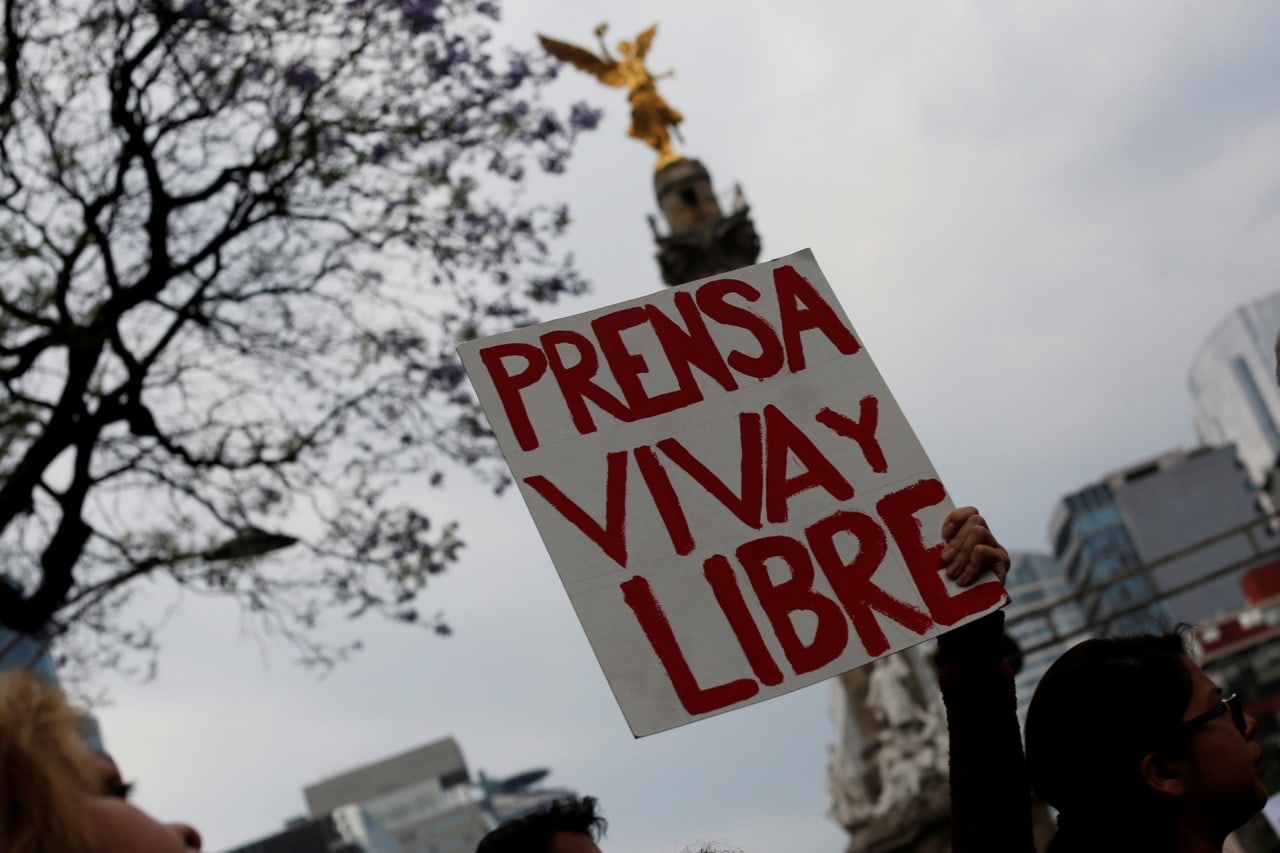A roundup of key free expression news in the Americas, based on IFEX member reports.
November was an intense month in the Americas. In addition to ongoing attacks on the independent press and human rights activists, the month was marked by two important dates.
The International Day to End Impunity for Crimes against Journalists was commemorated on 2 November. IFEX and its 119 member organisations are committed to taking up the challenge of ending impunity, which exists in more than 90% of cases in several countries in the Americas.
Among other activities, IFEX published information on six paradigmatic cases in the fight against impunity around the world.
One of the countries where impunity reigns is Mexico. Of 176 preliminary investigations initiated into homicides, disappearances and attacks on media outlets, only 10% have resulted in convictions. The case of murdered journalist Miroslava Breach, in which seven months have passed with no progress, is just one example of impunity in the country.
Owing to the conditions in Mexico, the United Nations’ and the Organisation of American States’ special rapporteurs for freedom of expression, David Kaye and Edison Lanza, conducted a mission to the country to review the situation and analyse possible measures and recommendations. One of the first results of this mission was the creation of a working group for journalist protection.
Reunión de trabajo con directores y editores de medios de comunicación en visita oficial @RELE_CIDH y @davidakaye a México: anuncian grupo de trabajo para seguridad de periodistas. importante anuncio! @sip_oficial pic.twitter.com/EeVJGNrXzP
— Edison Lanza (@EdisonLanza) November 29, 2017
And while the search for solutions continues, on 29 November an icebox with two human heads, along with a threatening message, was discovered outside the headquarters of a Mexican television network. The threat was issued by a drug cartel against a judge.
Censorship and attacks
In Venezuela the government approved the “Anti-Hate Law, for peaceful coexistence and tolerance”, which encourages Internet censorship and includes penalties of prison terms up to 20 years.
In addition, IFEX members in the country have reported constant and increasing threats and attacks on freedom of expression perpetrated by the government of Nicolás Maduro.
Journalists in Paraguay are enduring similar conditions, especially those in the country’s interior, where threats and physical attacks are all too common, according to local civil society organisations.
In Colombia, several journalists were assaulted during demonstrations in Cauca and Norte de Santander, and in Guatemala the government imprisoned community reporter Jerson Antonio Xitumul Morales.
Neutrality and commitments
Since he was elected on 8 November 2016, President Donald Trump has hardly let a week pass without making a decision that affects American media outlets. He has repeatedly denigrated journalists, accusing them of disseminating “fake news” and doing their job poorly. This is now the state of freedom of expression in the United States, a country that previously served as a reference point on this topic for the rest of the continent.
Trump’s November visit to Asia also carried with it symbolic implications regarding the importance the president places on freedom of expression. During the ten-day trip, Trump met with and offered support to governments headed by some of the worst press freedom violators in the world.
And while these issues are being discussed, another narrative, this one regarding net neutrality, is also playing out in the country. On this issue, Edison Lanza noted that a setback in the United States’ regulations that guarantee neutrality and non-discrimination on the internet could have global impacts.
In brief
On 25 November, the International Day for the Elimination of Violence against Women, the organisation UN Women launched its campaign 16 days of activism, which will culminate on 10 December, Human Rights Day.
In Brazil, the Brazilian Association for Investigative Journalism, with the Tim Lopes Program for the protection of journalists, launched an interactive and documentary site providing information about journalist assassinations in the country.
In Uruguay, the National Human Rights Institution and Ombudsman’s Office (Institución Nacional de Derechos Humanos y Defensoría del Pueblo, INDDHH) expressed its “deep concern over prolonged delays” by the government’s executive and legislative branches in implementing the Audiovisual Communication Services Law.
In Ecuador, an artistic endeavour was censored by the Catholic Church and the municipality of Cuenca.
